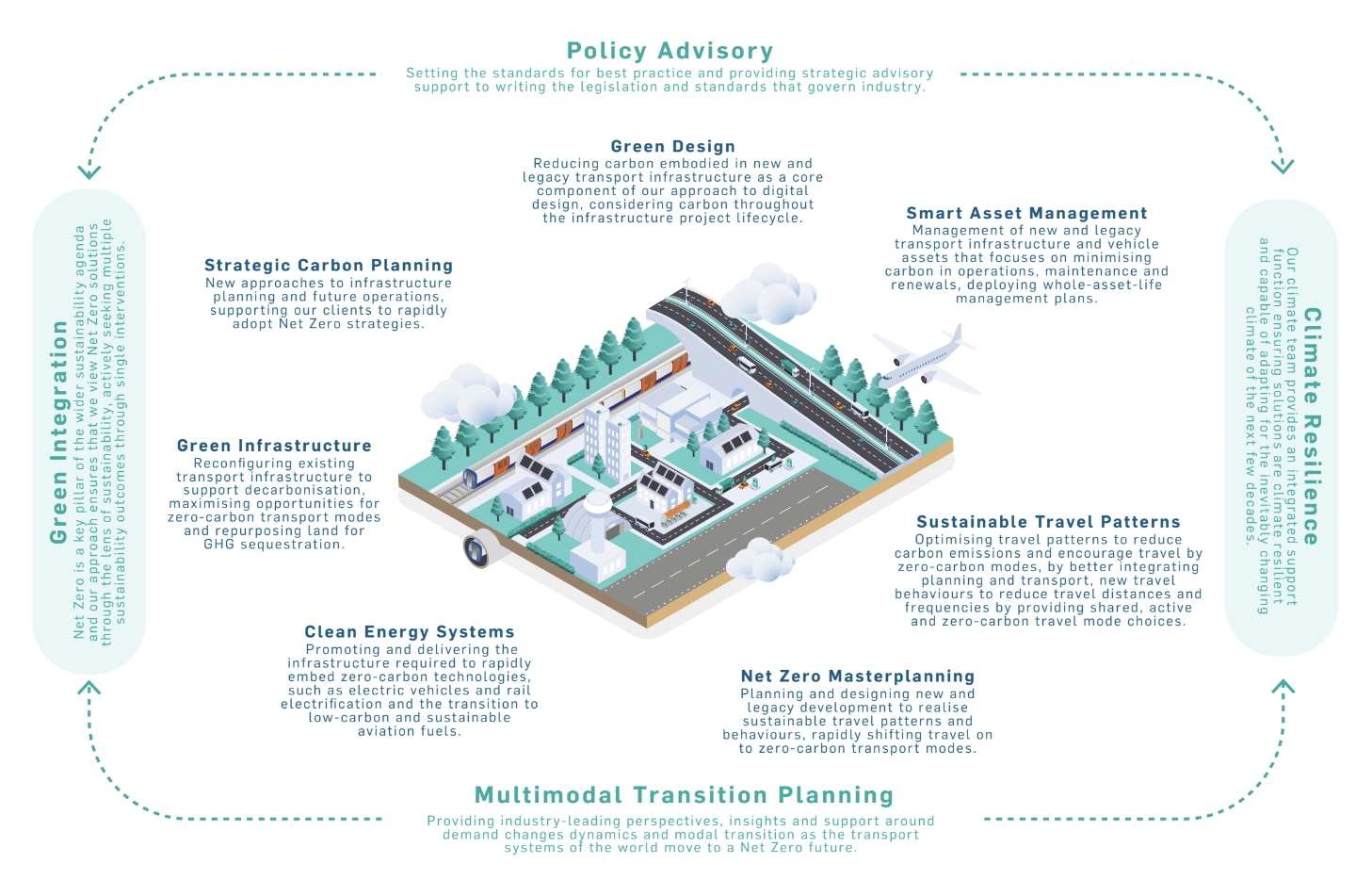Net Zero transportation
Our transport systems are the great enablers of our societies, connecting people and goods with places and markets, supporting vibrant local, regional and global economies.
Mobility and connectivity have delivered economic prosperity, massive social benefits and have shaped the way we live. However, for many countries around the world, including the UK, transport is now the single largest source of GHG emissions.
So how can we decarbonise our transport systems, while maintaining the level of mobility and connectivity our society and economy demands?
This is a substantial challenge, which, when addressed, uncovers a wide variety of interrelated issues and challenges. Strategic priorities will be focused on:
- Accelerating the shift to low- or zero-carbon modes, especially for local movements – electric vehicles, active travel and lowcarbon, mass-transit solutions
- Decarbonising road traffic through a rapid transition to electric vehicles
- The decarbonisation of longer-distance passenger and freight movement, with greater use of electrified railways, and new technology for heavy goods vehicles, planes and shipping
- Encouraging behaviours that rapidly change travel patterns, reducing carbon because we use zero-carbon modes, make shorter or less frequent trips, or don’t make trips at all.
Alongside these strategic challenges there are critical issues that need to be addressed on how we plan, build and operate our transport system, including:
- Understanding the current carbon baseline, targets and Net Zero pathways
- Driving Net Zero thinking into all aspects of infrastructure planning, design, construction and operation
- Stress-testing large infrastructure projects and programmes to check alignment with Paris Agreement
- How the transport system adapts to rapid electrification and shift to low-carbon modes
- Building consensus across all stakeholder groups about the changes likely to be required to how our transport system operates
- How to attract and secure funding and financing, especially post-COVID.
These challenges are significant but so too are the opportunities. However, unlocking them will require leadership and funding from government, with policy certainty that enables the private sector to invest with confidence in the infrastructure and technologies needed to decarbonise the transport systems.
For those who lean in and embrace this challenge there are substantial opportunities, with the opportunity to become a world leader in decarbonising transport systems that can deliver a cleaner and sustainable society









